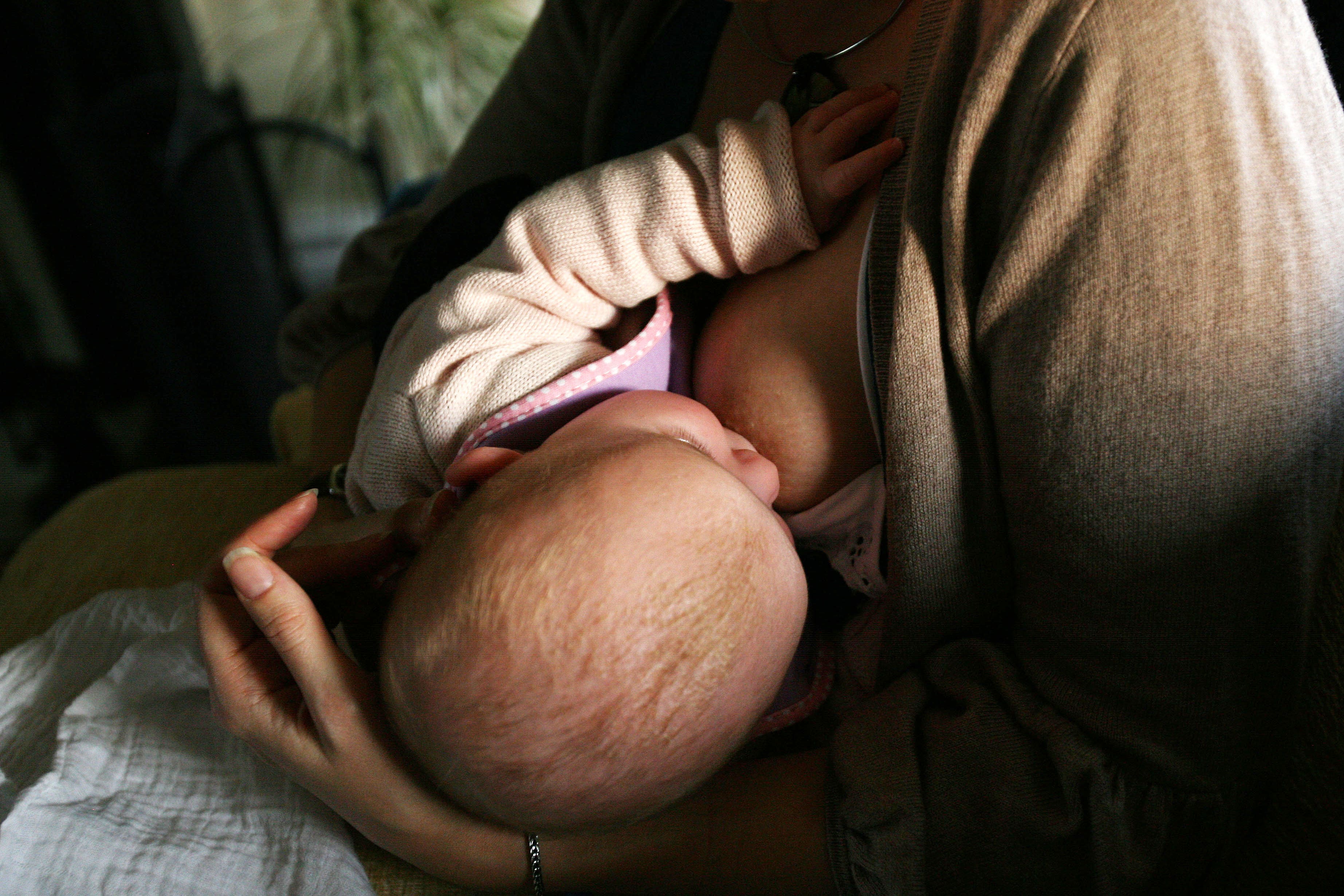Breastfeeding mums less likely to give their babies treats, study shows
Researchers also found mums who breastfed were more likely to wait until their baby was more than six months old to start weaning.

Mothers who breastfeed their babies for more than six months are less likely to give them treats like chocolate, crisps and sugary drinks before they turn one, according to a study.
Promoting breastfeeding where possible could help establish healthy eating from a young age, researchers suggested.
Academics from the University of Glasgow analysed the answers of 2,730 mothers of babies aged eight to 12 months included in the the Scottish maternal infant and nutrition survey.
Of the total, 20% exclusively fed formula, while 48% breastfed beyond six months after birth.
This is worrying, because eating habits are developed and established early in life, and it can be harder to change them later on
Those who gave their babies formula were more likely to give their infant treats (45%) compared to breastfeeding mothers (15%), the study found.
Lead author Dr Ada Garcia, of the University of Glasgow, said her team “were able to observe that diet inequalities start as early as six to 12 months old”.
“This is worrying, because eating habits are developed and established early in life, and it can be harder to change them later on,” she added.
“Our research suggests that continuing to promote breastfeeding, where possible, may help to protecting infants’ health, along with helping to establish healthy dietary behaviours from a young age.”
Researchers found breastfeeding mothers were also less likely to introduce their baby to solid food after they had turned six months (66%) compared to mothers who formula fed (37%), and were also less likely to give their babies food from a jar.
The NHS recommends introducing solids – known as weaning – at about six months, with food given alongside breast milk or formula.
According to the Department of Health and Social Care, giving babies food earlier than six months can reduce the amount of milk they consume and is associated with higher risk of infectious illnesses.
The team said the findings, published in the journal Maternal and Child Nutrition (MCN), show mums who breastfed their baby beyond six months demonstrated “more healthful complementary feeding practices” compared to those who used formula, “independent of socioeconomic status and maternal age”.
According to Public Health Scotland, two out of three babies born last year were breastfed for a period after birth, with 57% still breastfeeding at 10 to 14 days old.
Almost half (47%) were still being breastfed by their six to eight-week review.
Statistics published by the Office for Health Improvement and Disparities (OHID) in August revealed breastfeeding prevalence in England for six to eight weeks after birth, in the three months to March 2023, was 49.5%.
The latest annual maternity statistics for England, published by the NHS in December, showed 72.9% – or 336,510 babies – had breast milk as their first feed in 2022-23.
Erin Williams, co-founder and director of breastfeeding campaign group Feed, said: “Whilst supporting women who breastfeed is critical, promotion of breastfeeding alone won’t resolve the underlying structural and social issues that contribute to infant feeding inequalities.
“When women are supported financially, and with tailored, inclusive infant feeding support, it’s highly likely that we can reduce the barriers to both breastfeeding, and to accessing a healthy, nutritious diet.”
Bookmark popover
Removed from bookmarks